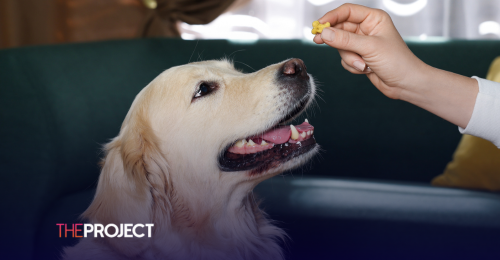Biotech startup Loyal created the drug LOY-002 in a bid to reduce aging in dogs by targeting the biological mechanisms of aging, including improving their metabolic health.
LOY-002 comes in the form of a delicious beef-flavoured tablet to be taken daily, and is aimed at dogs aged 10 and older with a weight of at least 6 kg.
While LOY-002 is expected to be available to pet owners in 2026, it's not Loyal's only drug in production.
Loyal is also creating LOY‑001 and LOY‑003, which have been specifically designed for larger canine breeds that weigh at least 18 kg. These drugs will focus on correcting overexpression of IGF-1, a growth hormone in large dogs that speeds up the ageing process. However, these drugs won't be available to the public until at least 2027.
As for LOY-002, Loyal's website reads: "We're developing LOY-002 to support healthy aging in senior dogs of nearly every size. The product is meant to target metabolic dysfunction, which may extend the number of healthy years your dog lives and support their quality of life as they age."
Founder and CEO of Loyal, Celine Halioua, says of the tablet, "We are not going to make dogs immortal", explaining that the company's goal is to extend health rather than lifespan alone.
Adding years to our furry friends lives has long been at the forefront of pet owner's minds, and it's no surprise LOY-002 raised $125 million in funding from investors.
The investors were initially interested in human longevity but shifted their focus to canine longevity due to the decades-long testing required for humans.
However, researchers believe that studying aging in dogs will provide valuable insights regarding human longevity, too.
"Dogs also suffer from similar age-related diseases, and they share our environment and habits in ways that laboratory mice do not," Halioua said, according to Vice News.
"Discovering how to prevent age-related decline in dogs is a good substitute for doing the same thing in humans," explained Halioua, "because dogs develop similar age-related diseases and share environments and habits with us in ways that laboratory mice do not."
Daniel Promislow, co-founder of the Dog Aging Project and a UW biogerontologist, believes, "If we succeed with dogs, it could be a turning point to inform us how to give human populations additional healthy lifespan."





























